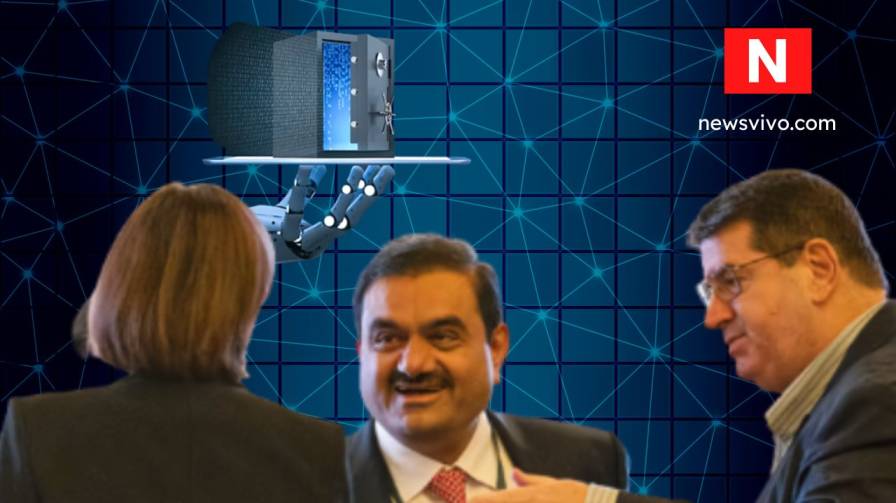
Gautam Adani
All you might aware of Gautam Adani,Gautam Adani is a billionaire Indian industrialist and the chairman of the Adani Group, an Indian conglomerate with interests in ports, agribusiness, power generation and transmission, and renewable energy. He is regarded as one of India’s most powerful business leaders, with an estimated net worth of more than $50 billion. Gautam Adani Group is a conglomerate of companies involved in a variety of industries, including ports, logistics, agribusiness, power generation and transmission, and renewable energy. In addition, the company owns and operates the world’s largest single-site solar power plant in Tamil Nadu, India.
Apart from looking for ways to expand his vast empire, he is addicted to ChatGPT, a programme that sifts through vast amounts of data to generate natural-sounding text on virtually any topic, from crafting jokes to writing ad copy, debugging computer code, and even generating poems and essays.
Gautam Adani, whose conglomerate has recently expanded beyond mines, ports, and power plants to include airports, data centres, and defence, wrote a musing from his trip to Davos to attend the World Economic Forum meeting.
“From a meetings perspective, this was perhaps my busiest WEF as I met over a dozen heads of state and several business leaders,” he wrote on LinkedIn, discussing new geopolitical couplings, climate change, and tight-lipped evangelists and artificial intelligence.
Develop the existing, or generative AI, were the buzzwords at all of the WEF discussions.
“Given its astounding capabilities as well as comical failures, the recent release of ChatGPT (I must admit to some addiction since I started using it) is a transformational moment in the democratisation of AI,” he said.
He stated that generative AI will have massive ramifications, and that the US’s foresight in chip design and large-scale production has put the country ahead of the rest of the world, paving the way for precision and guided weapons used in modern warfare.
“Self organizing AI has the same potential and risks as traditional AI, and the race has already begun, with China outnumbering the United States in the number of most-cited scientific papers on AI,” he said.
Throughout essence, Chinese researchers published twice as many AI academic papers as their American counterparts in 2021.
“This will quickly become as complex and entangled as the ongoing silicon chip war,” he added.
ChatGPT is an AI-powered chatbot prototype created by OpenAI. Users can ask the bot questions, and it will respond with pertinent, natural-sounding answers and topics.
ChatGPT’s responses sound very human, and it is designed to mimic real conversations. The bot can explain, remember what was said earlier in the conversation, expand on ideas when asked, and even apologise when it gets things wrong.
Gautam Adani stated that global alliances are now issue-based rather than allegiance-based, when discussing the new geopolitical couplings and their implications.
“Another very interesting remark made by Saudi Arabia’s Finance Minister that gave both China and the US the status of’very important’ highlights how quickly geopolitical couplings are evolving,” he said. “The past is no longer a reliable predictor of the future because no country wants to place a single bet.” Each country seeks its own form of self-sufficiency.
While climate change remains the top priority and risk for the global community, it is clear that climate investments will be driven by the energy security agenda and self-interest, he said, adding that the European energy crisis has blown away the façade of just focusing on green energy.
“Even as climate warriors may remain silent, there is recognition that we require a pragmatic energy transition plan that includes fossil fuels to achieve inclusive growth,” he said. “The US Inflation Reduction Act has prompted Europe to develop its own green package to prevent technology, money, and expertise from leaving the continent.” According to Gautam Adani, Europe’s reactionary move is motivated more by concern for its own energy security and industrial protection than by a desire to steer the global green transition.
“In far too many ways, the divide between the United States and Europe could not be clearer, as both pursue their own national agendas while claiming alignment. “There is nothing wrong with doing so in my opinion,” he said.
Furthermore, it is becoming clear that onshoring, self-reliance, energy independence, and building resilience in supply chains are just as important as local job creation.
“While we can agree on this in theory, I am returning to Davos a little more uncertain about the state of globalisation given that it is almost impossible for a country or a company to decouple itself and become completely self-sufficient,” he said.
It would be too exhausting and time-consuming.
“However, in the long run, this may not be necessarily bad for our part of the world, as India, Brazil, the Middle East, ASEAN, and African nations will all find opportunities to expand by stepping into trade vacuums created by decoupling,”
According to him, India is strategically located away from frozen slippery slopes and may be the primary bright spot among several large economies.
“We were there in force (at the WEF),” he said. “Our multi-vector, the non-partisan approach has ensured that we are well-respected and have become one of the leading voices batting for the emerging economies. The forum demonstrated India’s growing prominence, with widespread participation by Indian companies and government officials.”
Countries that rose to economic and geopolitical prominence had their governments and businesses collaborate closely to achieve a common goal, whether it was the United States, Japan, South Korea, or Singapore.
“It is now up to us to do the same in order to ensure that the twenty-first century belongs to India!” he wrote.
Although I’m unsure how much of the white pristine snow will vanish exposing the brown of the Swiss alps, I am confident that the percentage of my country’s women and men participating at the World Economic Forum will continue to increase. Perhaps we should start calling the World Economic Forum ‘the Indian Summer’ in Davos.”